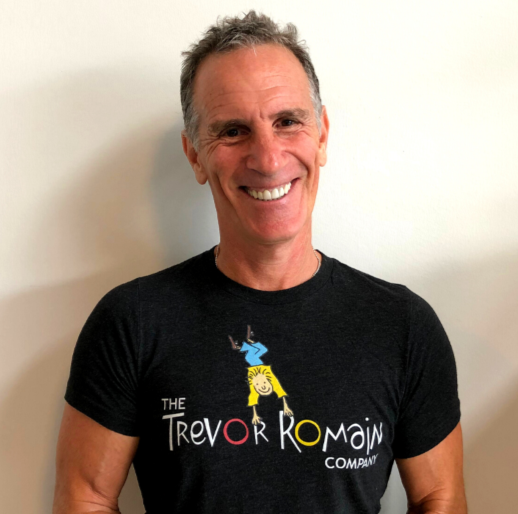The Suicidal Person by Dr. Konrad Michel – in Albanian
Dr. Konrad Michel's "The Suicidal Person" offers a groundbreaking perspective on suicide prevention. He is the founder of the internationally...

A dynamic and passionate best-selling author, award-winning illustrator, and internationally recognized motivational speaker with over 30 years of experience empowering children through storytelling, education, and humanitarian efforts. Dedicated to helping young people build resilience, confidence, and emotional well-being through books, public speaking, and multimedia projects.
Live Fee:
Virtual Fee:
Flies from:
The Science Behind Storytelling in Education
Recent research underscores the profound impact of storytelling on cognitive development and learning:
Key Benefits of Storytelling in Education
Practical Strategies for Educators:
The Trevor Romain Method: Transforming Education Through Storytelling
Drawing from his experiences of inspiring millions, Trevor will guide educators through:
III. How to Offer Emotional Support (20 minutes)
III. The Power of Genuine Connection (10 minutes)
Trevor Romain is a best-selling author, award-winning illustrator, and internationally recognized motivational speaker. Originally from Johannesburg, South Africa, he has written over 50 books that have sold more than a million copies worldwide and have been translated into 26 languages.
For more than 30 years, Trevor has traveled the world, bringing his inspiring self-help messages to hundreds of thousands of children in schools, hospitals, orphanages, refugee camps, and military bases. He is widely respected for his work with organizations such as the American Childhood Cancer Organization, Make-A-Wish Foundation, UNICEF, The Boys & Girls Club, and the USO. As a co-founder and board member of The Comfort Crew for Military Kids and President of The Trevor Romain Company, he is dedicated to helping children build confidence, resilience, and emotional well-being.
Beyond his writing and speaking engagements, Trevor has collaborated with the United Nations to create educational materials for children affected by armed conflict. His humanitarian efforts have taken him to regions such as the Congo, Burundi, Rwanda, and Uganda, where he has worked closely with former child soldiers and refugee communities.
Trevor also starred in the award-winning PBS animated series, The Trevor Romain Show, which helps children navigate real-life challenges, including bullying, fear, divorce, and grief. His lifelong mission remains the same: to empower kids with the tools they need to thrive, no matter their circumstances.
Here’s what’s going on right now at Keller Media. We’re so proud of our authors and speakers!
Dr. Konrad Michel's "The Suicidal Person" offers a groundbreaking perspective on suicide prevention. He is the founder of the internationally...
News Flash! News Flash! News Flash! Keller Media now offers a customized, affordable, high-delivering podcast promotion service to help authors...
Our superstar author, speaker, and friend Tessa White’s powerful book “The Unspoken Truths for Career Success: Navigating Pay, Promotions, and...
Subscribe to our newsletter – the Trailblazer Tribune – to get insider access to what’s going on now in the publishing and speaking industries, what’s hot and what’s not, fast-breaking calls for proposals from editors, media opportunities, tips, insights, and lots more.
©2025 Keller Media, Inc. All Rights Reserved